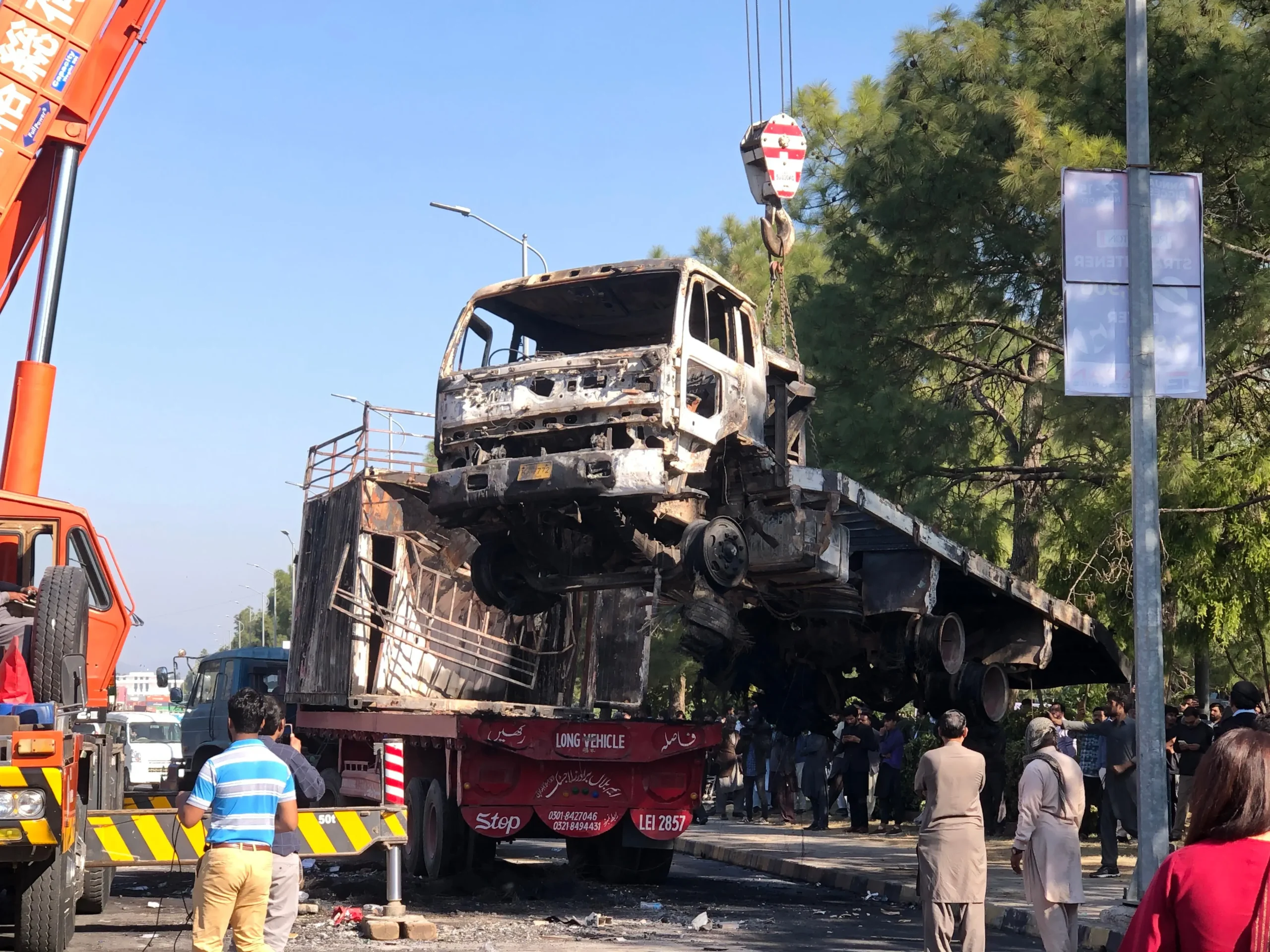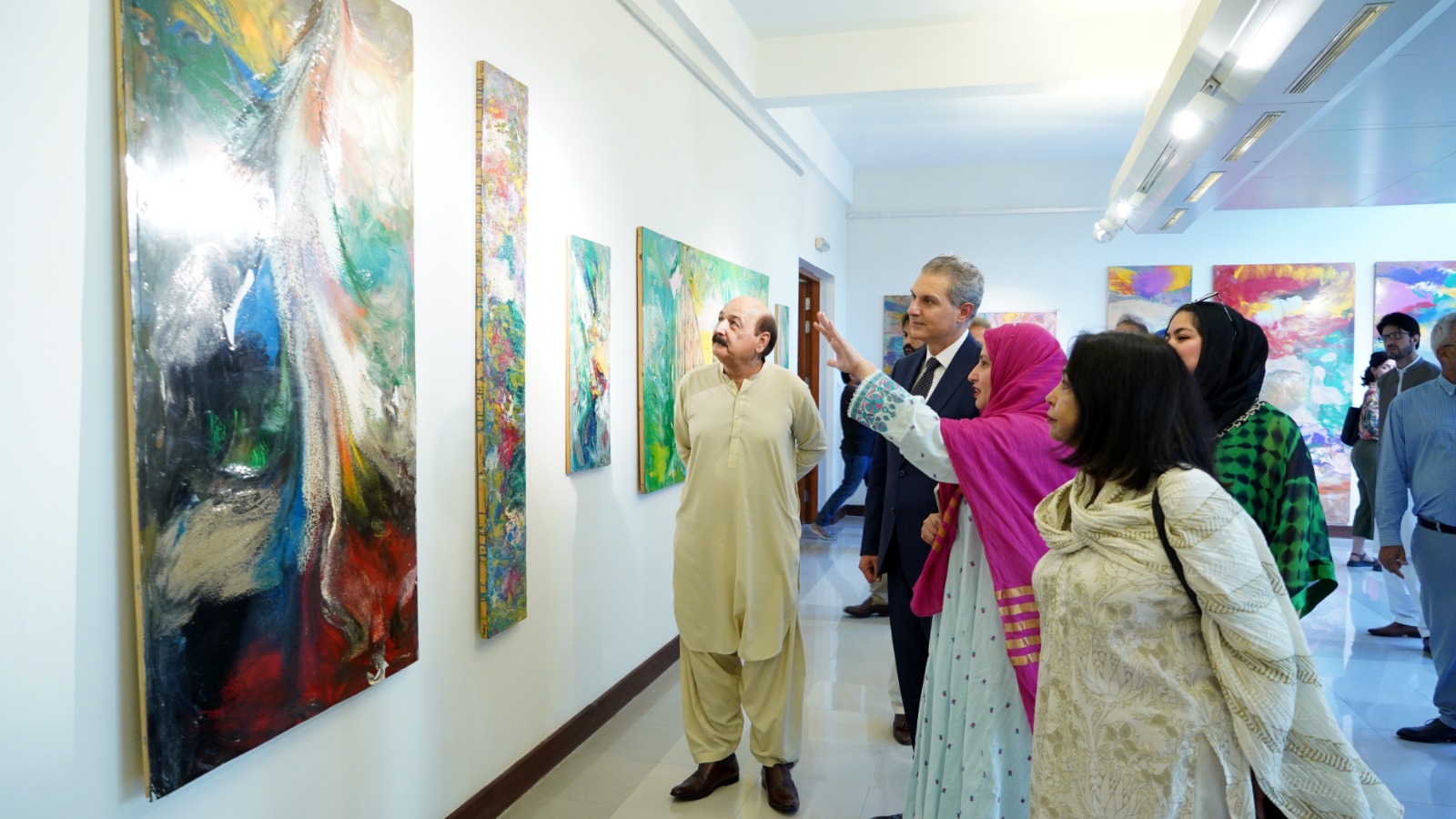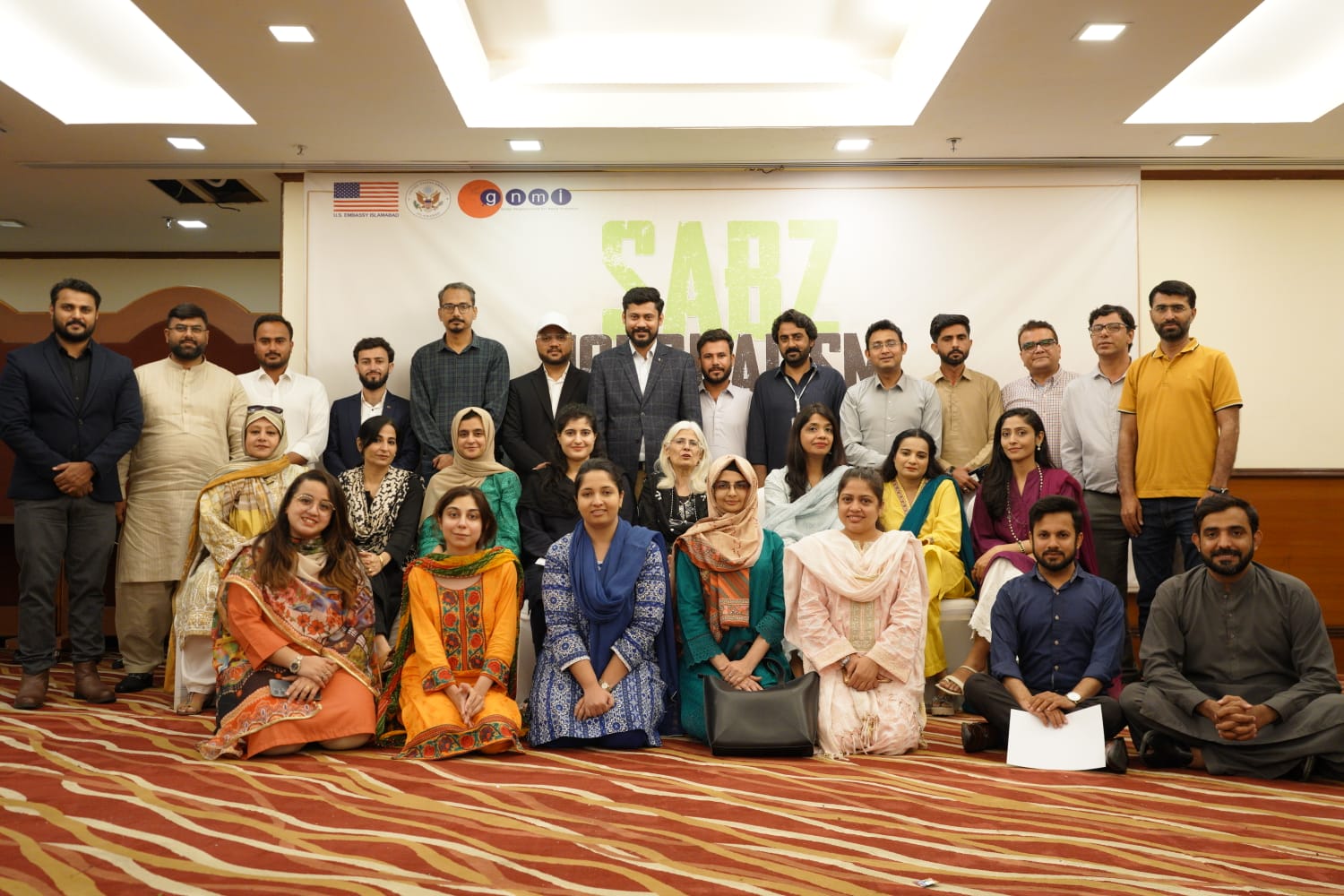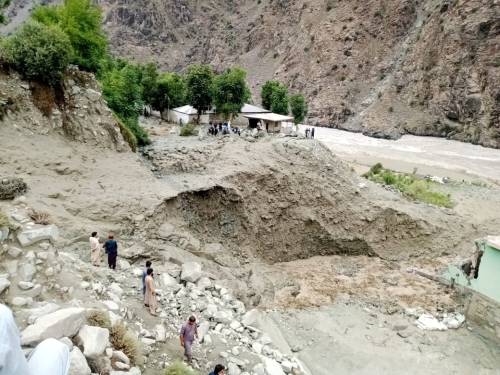By: Faisal Rehman
Even after the 2024 general elections, 28-year-old Hameed Qaiser (one of the labourers) continues to work as an office boy in Pakistan’s informal sector, like many other workers across the country.
The Sindh government, on July 1, 2024, announced a new minimum wage of Rs 37,000 (approximately $132) per month for workers across the province. However, nearly three months later, Hameed still earns only Rs 22,000 (around $78.94) per month.
According to a summary sent to the Chief Minister of Sindh by the Labour and Human Resources Department on October 18, the department proposed an increase in the wages of unskilled workers to Rs 37,000, semi-skilled workers to Rs 38,280, skilled workers to Rs 45,910, and highly skilled workers to Rs 47,888.
The Sindh government claims that these measures aim to improve workers’ welfare and ensure fair wages across various sectors, as per their announcement. However, no formal notification has been issued yet, leaving the issue of minimum wages confined to the announcement stage.
“When I learned about the Sindh government’s announcement a few months ago, I informed my office that inflation is rising and that the government had declared a minimum wage of Rs 37,000. I requested a raise in my salary accordingly,” Hameed recalls.
He requested not to be photographed, saying, “If my photo is published, I’ll lose my job.” Continuing, he explained, “The HR department of my company told me, ‘If you want to work on the current salary, stay; otherwise, leave. We will hire someone else.’ Upon hearing this, I realized I had no other option but to continue working here at the current salary. Inflation is already high, and finding another job immediately is extremely difficult.”
Hameed further shared that out of his Rs 22,000 salary ($78.94), Rs 8,000 ($28.82) is spent on commuting from home to work and back, leaving him with only Rs 14,000 ($50.44) for household expenses and personal needs.
In response to a question, Hameed revealed that if anyone in his household falls ill or if he himself gets sick, they rely on government hospitals for treatment. “I have no right to negotiate my salary with my office.”
Hameed completed his graduation last year, yet he continues to work as an office boy at the same place, where he has been employed for three years.
When asked about workers like Hameed, who are forced to work in the informal sector on low wages, PPP leader and NA-243 representative in the National Assembly said, “The National Assembly has approved an increase in wages with the 2024 budget, setting the minimum wage at Rs 37,000.”
When questioned further about workers from his constituency, NA-243, who are stuck in the informal sector with low wages, the MNA said, “The relevant department has sent a summary to the Sindh government, and a notification will be issued soon.” He declined to comment further.
Mehboob Rizvi, a labor law expert and lawyer, told The Friday Times that although the Sindh government increases the minimum wage for unskilled, semi-skilled, skilled, and highly skilled workers every year, more than three months have passed since the 2024 budget, and no official notification has been issued.
A notification would mean that both formal and informal sectors would be bound by the Sindh government’s order to implement the announced minimum wage. However, Rizvi pointed out that the impact of such notifications is largely ineffective in the informal sector. “In Sindh, especially in Karachi, there is virtually no inspection system in place within the Labour Department. With a population exceeding 15 million, the monitoring system to ensure minimum wage implementation in the informal sector is extremely weak, which is why the notification has little effect on these workers.”
The Sindh government must establish a robust mechanism to enforce the law on minimum wages. Until then, workers will continue to work for low wages, unless the provincial government takes concrete action.
Promises vs. Reality: Post-Election Struggles for Workers
An informal economy (also known as the shadow economy) refers to that part of the economy that is neither taxed nor monitored by any form of government oversight.
A recent joint study by the Small and Medium Enterprises Development Authority (SMEDA) and the International Labour Organisation (ILO) has revealed alarming new evidence of the continued expansion of Pakistan’s informal economy.
The study estimates the informal sector’s total value at a staggering $457 billion, significantly overshadowing the formal economy, which was valued at $340 billion in 2023 according to official data. This suggests that the informal sector is nearly 64 percent larger than its formal counterpart.
Twenty-six-year-old Shumaila Imtiaz recently started working as an Administrative Assistant at a call center in the informal sector.
In an interview with The Friday Times, Shumaila said, “When I had my interview, the monthly salary was set at Rs. 40,000. However, when I was given the contract to sign after joining, I found that my salary was listed as Rs. 30,000. When I raised an objection, I was told that this arrangement would be for the first three months. While they knew about my experience, they didn’t have firsthand knowledge of my work, so I would have to work for Rs. 30,000 for three months.”
She added, “Had I refused to work at this salary, there were plenty of others willing to accept the same. If I say this was a trick, it wouldn’t be wrong.”
Shumaila had voted for the ruling Pakistan Peoples Party (PPP) in the provincial government but remarked that the government’s declarations remain just that—declarations. Even after the 2024 elections, no significant action has been taken by the Sindh government’s Labor Department to improve the situation for the informal sector.
“It seems like the government needs another century to enforce labor laws because, in the last 15 years, they haven’t been able to resolve this critical issue,” Shumaila shared in a disheartened tone.
During an interview with The Friday Times after the National Conference on the Eradication of Forced Labor in Karachi, Sindh Minister for Labor and Human Resource Development, Shahid Abdul Salam Thaheem, said, “We are making concerted efforts this time. The hardest part is drafting the laws. Once that is done, the next phase is enforcement. We will soon release various statistical reports on this issue.”
“The Sindh government will soon issue a formal notification enforcing the minimum wage of Rs. 37,000 per month,” Thaheem added.
Zehra Khan, a Pakistani trade unionist and labor activist, serves as the General Secretary of the Home-Based Women Workers Federation (HBWWF). She told The Friday Times, “Reports suggest that large businesses sometimes shift their operations to the informal sector or their subsidiaries, as the cost of doing business in the heavily regulated formal economy is much higher.”
“Informal workers are largely excluded from formal social safety nets. They earn less and have fewer ‘buffers’ such as savings or access to government support programs,” Zehra continued.
This means the more insecure the informal sector is, the more vulnerable the low-skilled workers are to exploitation. Unfortunately, the government’s indifference has not led to any substantial actions to address this crisis. “In the informal sector, it often means that instead of the guaranteed minimum wage, employers can decide whatever monthly wage they please,” Zehra elaborated.
She concluded, “I’ve been part of many government committees in the past. In my view, elections don’t make as much of a difference as consistent enforcement of laws does to solve these issues.”
Formal informal sector limping laws practices
The Friday Times sought to verify with various experts and public and private institutions whether the formal sector is shrinking or expanding, but at present, it remains unclear.”
According to Noor Fatima, Senior Research Associate at the Research Society of International Law (RSIL), several international studies indicate that in countries where the informal sector is significant, private sector financial access is limited, labor productivity is low, capital accumulation—both physical and human—is slow, and financial resources are scarce. These factors are the primary drivers of worker exploitation in the informal economy.
Government Moves Toward Solutions, Stalls Business and Human Rights Law
Nasir Mansoor, Deputy General Secretary of the National Trade Union Federation (NTUF) Pakistan, told The Friday Times that the National Action Plan (NAP) on Business and Human Rights (BHR) in Pakistan was developed through a consultative and comprehensive process and was approved by the cabinet in 2021. Following its initiation, the Ministry of Human Rights prepared an operational plan for its implementation, organizing various consultative and awareness sessions to ensure stakeholder participation in the process. Measures were also taken to guarantee broader inclusion and accessibility.
“However, the unstable political government and circumstances have severely impacted the implementation of this newly developed and comprehensive National Action Plan. This has particularly affected the Sindh provincial government, slowing down the execution of the plan,” Mansoor further added.
Mumtaz Mastoi, a legal expert, told The Friday Times that in any case, legislation tends to be affected by political instability, which is why many laws that are part of the National Action Plan face delays in their implementation at the provincial level.
“The Sindh government has before it a comprehensive plan from the National Commission for Human Rights concerning the Business and Human Rights law, yet its slow implementation could have various reasons. However, I believe that political instability changes the government’s approach, and as a result, important laws like this, which are merely in the implementation phase, are delayed, Mastoi noted Mastoi further explain.”
It is also worth mentioning that, according to the Economic Survey of Pakistan, the informal sector, which has continued to expand over time, is currently estimated at a staggering $457 billion, significantly larger than the formal economy, which was officially projected at $340 billion in 2023.
Speaking with labor law experts, The Friday Times found that Pakistan is the first country in South Asia to have a Business and Human Rights law under a National Action Plan.
Labor rights experts believe that this is the only law which, if implemented effectively by provincial governments across the country, could significantly protect the human rights and labor rights of workers in the informal sector.
They argue that under this law, the economic conditions of workers associated with the informal sector could also be safeguarded and improved. Once implemented, it could help with the economic recovery of these workers and lift them out of poverty.
Hamid and Shumaila exercised their right to vote in the 2024 elections, casting their ballots for the candidates they believed in. However, both believe that while numerous labor protection laws have been passed in Pakistan, enforcing them has never been a post-election priority for governments.
They feel that millions of workers in Pakistan face severe human rights violations every day, but unfortunately, such issues are rarely covered in the media.
In an interview with The Friday Times, Shumaila concluded her remarks in a deep and somber tone, saying, “To be honest, I have no hope, but still, I will convince myself to vote again next time.”
Also read: Jirga asks for durable peace in Shangla







